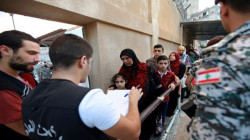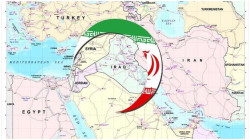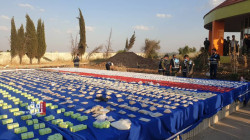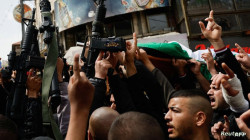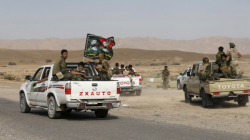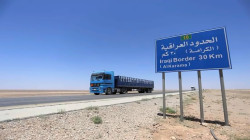Iraq fights back against synthetic drug flood engulfing the Middle East
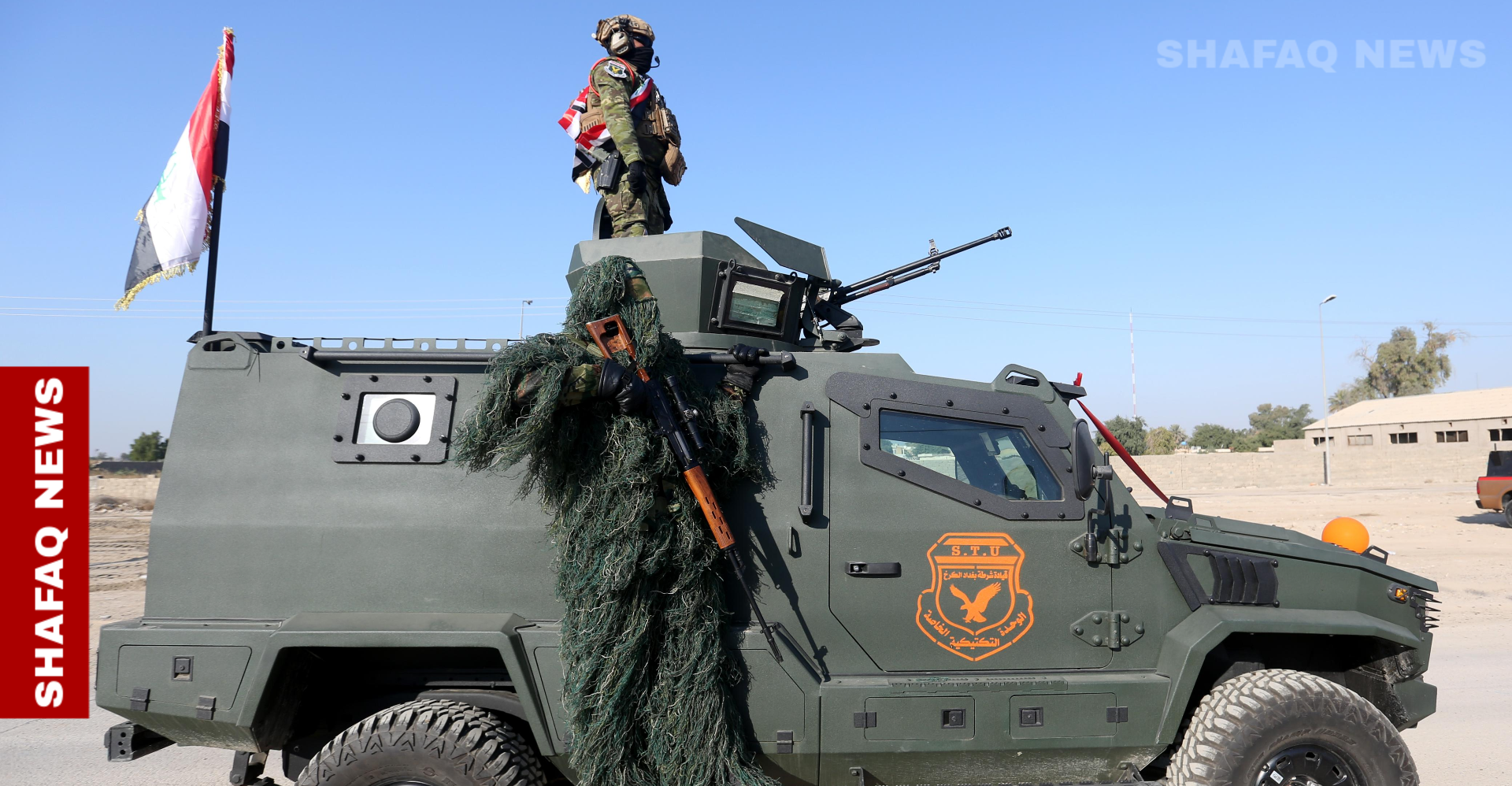
Shafaq News/ A silent war is raging across the Middle East—not with bullets, but with pills and powders. Synthetic drugs like captagon and crystal meth are flooding regional markets, their trade driven by conflict, corruption, and criminal networks.
A Regional Nexus of Drug Trafficking
According to the UN Office on Drugs and Crime (UNODC), Iraq is increasingly integrated into both the Balkan and Southern trafficking routes, which link producers in Afghanistan and Syria with markets across the Gulf, Africa, and Europe.
The region’s primary trafficking corridors, the UNODC said, converge in Iraq via three key routes: the northern path through the Kurdistan Region, the central route via Al-Anbar—particularly the Al-Qaim border crossing with Syria—and the southern corridor through Basra. Methamphetamine is largely trafficked through the south, while captagon is concentrated along the central corridor.
These corridors remain vulnerable due to both weak governance in border areas and the cross-border operations of armed criminal groups. In Iran, while authorities have stepped up interdictions, traffickers continue to exploit lesser-patrolled desert regions. Afghanistan’s narcotics economy, especially following the Taliban’s return to power, has also driven more sophisticated trafficking tactics using courier networks and transit states such as Iraq.
Iraq’s National Challenge
Iraq has also become a target market and emerging production hub. In 2023, authorities dismantled a captagon production lab in Al-Muthanna province near the Saudi border. Security sources suspect the existence of additional clandestine labs near Erbil, Al-Sulaymaniyah, and Kirkuk. These developments mark a shift from Iraq’s earlier role as merely a transit country, the UNODC pointed out.
Iraq’s geographical location, economic disparities, and legacy of conflict have made it especially vulnerable. Security expert Ali Al-Maamari told Shafaq News that trafficking thrived amid open “borders and Iraq’s relatively stronger economy. Drugs manufactured in Syria and Lebanon using raw materials from Afghanistan and Iran were easily funneled into Iraq’s market.”
However, regional shifts—such as the collapse of the Syrian economy, instability in southern Lebanon, and tensions between Afghanistan and Iran since 2022—have disrupted traditional trafficking routes. “These changes coincided with the appointment of Interior Minister Abdul Amir Al-Shammari, a veteran military figure credited with implementing more strategic and coordinated counter-narcotics policies,” Al-Mamaari explained.
Escalating Seizures and Global Recognition
UNODC reports that Iraq’s seizures of captagon surged by nearly 3,380% between 2019 and 2023. In 2023 alone, Iraqi authorities seized over 4.1 tons of the drug. Methamphetamine seizures in the Kurdistan Region jumped from 24.6 kg in 2019 to 745.6 kg in 2023. Captagon seizures in the region increased from 119.3 kg to more than 1.3 tons during the same period.
UNODC also highlights that domestic drug use is rising rapidly. The number of Iraqis treated for drug use disorders more than doubled between 2017 and 2021, and by 2022, over two-thirds of patients were addicted to amphetamine-type stimulants.
This trend has placed growing pressure on Iraq’s public health system. Clinics and psychiatric services are under strain, especially in underserved provinces where rehabilitation centers are few. Civil society groups warn that untreated addiction is fueling family breakdown, youth unemployment, and a rise in petty crimes.
The UN agency attributes Iraq’s persistent drug challenge to corruption, instability, and armed group involvement in cross-border criminal economies. It recommends stronger regional coordination, improved data sharing, and expanded treatment programs.
As a result of Iraq’s growing institutional response, the country’s Anti-NarcoticsDirectorate was ranked third at the 2024 World Police Summit in Dubai, following India and Montenegro. This milestone reflects the growing international recognition of Iraq’s evolving drug control framework.
Enforcement Gains and Judicial Outcomes
The Iraqi government has intensified its counter-narcotics efforts through a combination of enforcement, legislative reform, and regional cooperation. In the first quarter of 2025, the General Directorate for Narcotics and Psychotropic Substances reported 3,006 arrests and 973 judicial convictions. Authorities seized over 2.166 tons of illicit substances, including 1.538 tons obtained under judicial orders from the Central Investigative Court in Al-Rusafa.
Operations were not without confrontation. Two fatalities and 13 injuries were recorded during raids involving armed resistance. No details were provided on the nationalities of those arrested or the specific types of drugs seized.
Additionally, Brigadier General Muqdad Miri, head of the Ministry of Interior's Relations and Media Department, announced on April 21 the dismantling of 79 local and 67 international drug networks. Iraq also issued 12 international arrest warrants and secured the extradition of 12 suspects, primarily from Kuwait.
“Border security has significantly improved, with the introduction of radar systems and enhanced coordination with neighboring countries,” Miri revealed, adding that Iraq’s current border control is the most effective in the country’s history.
Preventive Measures
But officials and experts warn that enforcement alone cannot solve the problem. While enforcement remains central to Iraq’s anti-narcotics strategy, authorities stress that long-term success depends equally on prevention, rehabilitation, and institutional reform. Officials and civil society leaders alike point to public education, healthcare infrastructure, and inter-agency coordination as key pillars in reducing drug demand and reintegrating affected individuals.
Colonel Abbas Al-Bahadli, spokesperson for the Ministry of Interior, emphasized the need for continuous public education campaigns to sustain momentum, especially targeting youth, schools, and families.
To address addiction, “Iraq has established 15 rehabilitation centers across its provinces,” Al-Bahadli said, noting that individuals who voluntarily surrender to authorities are offered confidential, non-penal treatment that includes both medical and psychological care, enabling reintegration into society.
For his part, the member of Iraq’s National Narcotics Control Team and the Future of the Child organization Haider Al-Quraishi indicated that civil society organizations have played a vital role in awareness initiatives, including seminars in schools and public venues to reduce drug use among vulnerable populations.
“To further strengthen institutional capacity, Iraq deployed advanced drug detection equipment at all border crossings and postal centers. The Iraqi Food and Drug Authority was also established to regulate pharmaceutical imports and reduce diversion to illicit markets.”

